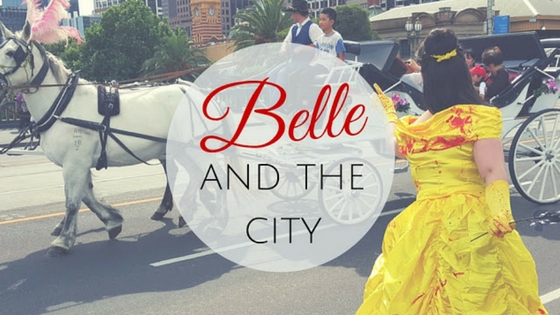Am I funny in English?
I would like to come clear on one of my latest fears. After my improv theatre experience, more like during it, I was assaulted by the unbearable thought that I might not have the same sense of humour in Italian as I do in English. I am fully aware this is one of those sentences that you’d never expect to hear, yet, here we are. Welcome to the daily struggles of a bilingual person.
While I do believe that my sense of humour remains the same despite the country I’m in, I am firmly convinced my way of communicating a joke might be impacted by my knowledge of a foreign language.
It's not all about grammar, considering that a joke is funny if it rises from a sound premise and is followed by an understandable punch line. I am talking pop culture, general history, perceived history, stereotypes, and much more.
Practical example: we were playing Cards against humanity. Now, this is how you know this anecdote is going to be good. The premise card read something along the line of: What aboriginals are glad for. In a sea of ‘glue’ ‘medicare’ ‘coke bottle’ etc, I played what I thought to be the best answer ever: ‘slavery’. Clearly, I was the only non-Australian in the group.
For my non-Australian readers that may be wondering: what’s wrong with that? Well, apparently the Englishmen never managed to implement slavery. Did I know that? Of course not. Was it a funny card to play, given the circumstance? Yes. Was it funny for anyone else? No, because it didn't make sense.
This accuracy thing is an issue when I am trying to take part in group activities such as the scenes we did in improv theatre. I particularly had a hard time with the most basic situations that involved the animal kingdom. Australians learn this level of English before they even go to school: animal names, funny species, collective names, animal noises, body parts. At that age I was busy learning Italian and, by the time English became a subject for me, my teachers were focusing more on grammar than beaks and trunks.
I am sure anyone would understand me if I said that my dog has four feet and a face.
What happens, then, is that the joke becomes the idea of a dog with feet and a face, and the actual premise of the joke that was already going on, on stage, is lost. In improv they call it ‘a gift’, more material to play with, so I know it shouldn’t be an issue at all, but in my head it slowly became one.
To be fair, none of my theatre classmates ever complained if I called it a ‘shark hammer’ or if my frogs went ‘Cra Cra’. But I am not surprised I got stuck at level 3.
Which, out of 5, it’s not too bad! But that’s not the point.
The point is that, when you’re bilingual and live in a foreign country, other than a massive amount of different habits, beliefs, and words, you are bound to have your share of jokes landing flat and to question your own personality.
Am I as funny in English as I am in Italian?
Image: via
While I do believe that my sense of humour remains the same despite the country I’m in, I am firmly convinced my way of communicating a joke might be impacted by my knowledge of a foreign language.
It's not all about grammar, considering that a joke is funny if it rises from a sound premise and is followed by an understandable punch line. I am talking pop culture, general history, perceived history, stereotypes, and much more.
Practical example: we were playing Cards against humanity. Now, this is how you know this anecdote is going to be good. The premise card read something along the line of: What aboriginals are glad for. In a sea of ‘glue’ ‘medicare’ ‘coke bottle’ etc, I played what I thought to be the best answer ever: ‘slavery’. Clearly, I was the only non-Australian in the group.
For my non-Australian readers that may be wondering: what’s wrong with that? Well, apparently the Englishmen never managed to implement slavery. Did I know that? Of course not. Was it a funny card to play, given the circumstance? Yes. Was it funny for anyone else? No, because it didn't make sense.
This accuracy thing is an issue when I am trying to take part in group activities such as the scenes we did in improv theatre. I particularly had a hard time with the most basic situations that involved the animal kingdom. Australians learn this level of English before they even go to school: animal names, funny species, collective names, animal noises, body parts. At that age I was busy learning Italian and, by the time English became a subject for me, my teachers were focusing more on grammar than beaks and trunks.
I am sure anyone would understand me if I said that my dog has four feet and a face.
What happens, then, is that the joke becomes the idea of a dog with feet and a face, and the actual premise of the joke that was already going on, on stage, is lost. In improv they call it ‘a gift’, more material to play with, so I know it shouldn’t be an issue at all, but in my head it slowly became one.
To be fair, none of my theatre classmates ever complained if I called it a ‘shark hammer’ or if my frogs went ‘Cra Cra’. But I am not surprised I got stuck at level 3.
Which, out of 5, it’s not too bad! But that’s not the point.
The point is that, when you’re bilingual and live in a foreign country, other than a massive amount of different habits, beliefs, and words, you are bound to have your share of jokes landing flat and to question your own personality.
Am I as funny in English as I am in Italian?
Image: via



Comments
Post a Comment